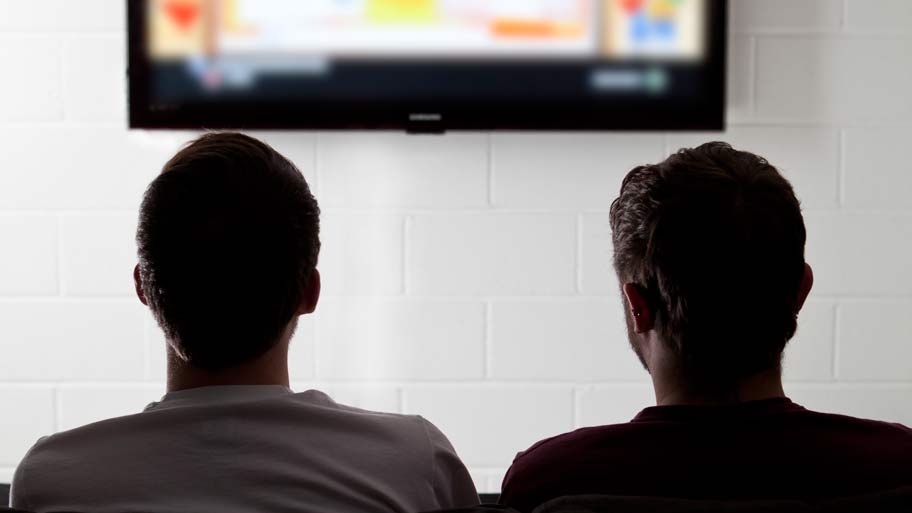Binge-watching is ruining the magic of TV
Savour the things you love and you'll remember them for longer.

Sign up for breaking news, reviews, opinion, top tech deals, and more.
You are now subscribed
Your newsletter sign-up was successful
Watching five episodes of a new thing in a row isn't a good idea, no matter how enticing Netflix and opinion columns about Game of Thrones in the Guardian make the concept seem.
Yes, it gives you something to talk about on the internet the next day, but it devalues the experience of watching a series unfold and grow.
Good TV used to be associated with a time in your life. A few years. A period in which you, and the characters, changed. BlackAdder, for example, sees me go from being 10 and not really getting it, to being 16 and it being the funniest thing to have ever existed.
Watching everything ever made all at once in a blur lessens the impact. I have stronger memories of big telly events from 30 years ago than of things I watched last week.
You watch things on your own, out of sync with the world. It's isolating and weird.
Admittedly this might be because I didn't have a mobile phone and a child waving Lego at me as I tried to watch Blake's 7's climactic destruction of the Liberator at the end of series three in 1980, and there were only three channels and one of them was ITV, but still.
Modern landmark television events are ruined by binges. You watch things on your own, out of sync with the world. It's isolating and weird.
Sign up for breaking news, reviews, opinion, top tech deals, and more.
Recently I started powering through Sherlock, seeing as the internet wouldn't shut up about it, trudging through the first three moderately decent episodes before hitting the first episode of series two. It was a stonker.
If I was watching it "live" back in 2012, I'd have a week to ruminate on its events and cleverness and it would permeate my soul. I'd remember it.
But as the next one's right there on my computer, I'll probably watch that one tomorrow and move on, consuming at a pace that simply isn't sensible for the forming of memories and attachments.
Plus, seeing as bingers are always at different viewing points, me making a witty observation about Sherlock S02 E02 on Twitter's not really going to work, so binges end up leaving you feeling oddly disconnected from the rest of the viewers. Instead of "Did you see it last night?" the conversation has become "Oh, which one are you on?" and the talking points are lessened.
You can't preface every tweet with the episode number and original broadcast date, as then you don't have enough letters to make your little joke. So my comparison between Sherlock's 'The Woman' and Alex Polizzi will have to stay untweeted.
We were grateful for Newsround
The thrill in watching Star Trek TNG as it aired on BBC2 in the early 1990s was that you really, really appreciated it. You didn't know if the BBC would show the next series, or even the next episode, plus there was no internet to spoil everything by revealing that, yes, Patrick Stewart has signed on to be in series 4, so he's unlikely to stay borg-ified for longer than the 42 minutes of the next episode.
It was television on a knife-edge. As such, I was even grateful for the turgid episodes about Worf's family history.
You need time for memories to fade a bit, so your brain can paper over the joins
Take the gradual mental deterioration of a character, as seen in modern binge-classic and all-in-one-go watching innovator Breaking Bad. In real-time, one hour a week style, four or five weeks seems like a reasonable amount of time for someone to go completely bonkers.
But when you binge watch it episode after episode in the same day or even watching one a day, it's immediately noticeable that the make-up department has done the eyes of said mentally-deteriorating character a bit darker for the next episode.
It's jarring. You need time for memories to fade a bit, so your brain can paper over the joins. It's more realistic that way, plus it becomes part of your life when something's there, once a week, for several months or years.
You also know how much there's left when powering through with abandon, which is another massive tension killer. Series four of Breaking Bad's not as exciting as it could be, as you know there's series five queued up already, so it's unlikely Walt's going to get shot in the face and die during S4's finale.
The whole idea of promoting binge watching feels like a crappy solution to the modern marginalisation of TV.
It solves the short-term problem that everyone would rather be looking at their tablets all the time than gathering around the TV to watch landmark episodes as one nation, together, experiencing live the moment Del Boy fell through the bar for the first time, but it devalues the experience.
It makes TV more forgettable and less anchored to key ages and moments in our lives. Which is only going to further lessen its impact and hasten its demise.